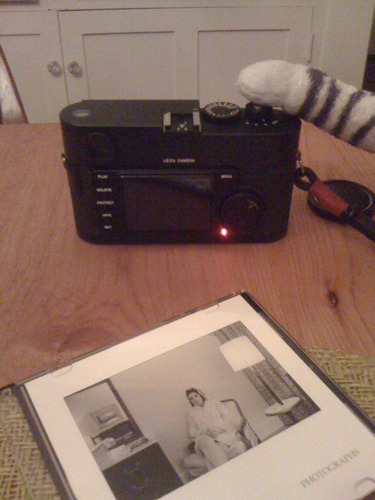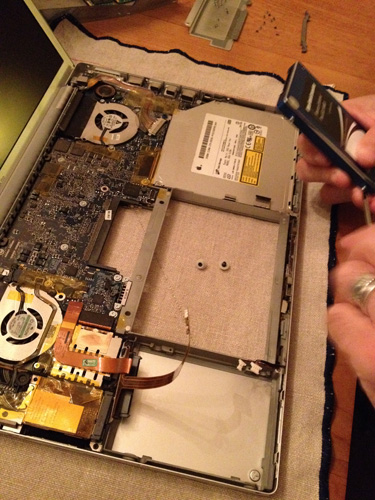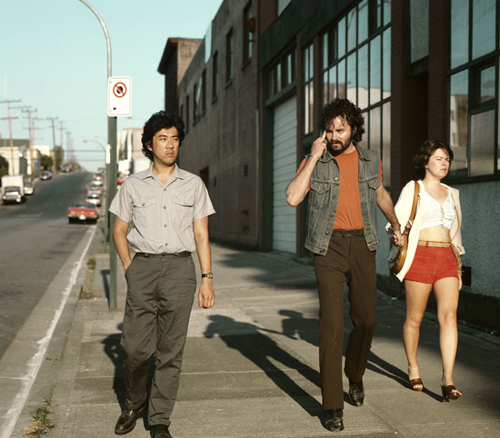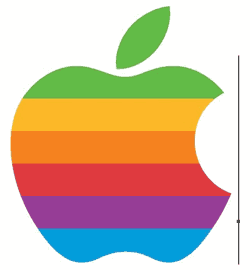Oh, you people who fault John D’Agata for being a liar, a fact-molester, and a manipulative meany.
Oh, you “sharers” of videos, “thumb-uppers” of call to actions.
Lets get a few things straight.
– It took the US decades to improve working conditions for ourselves (and it’s still ongoing), even with a democratic system at the top.
– John D’Agata has never claimed any more territory than that of the essay, and has never tried to massage facts in order to “underline a cause” or “raise consciousness” (in the Kony/Foxconn sense). His stakes are intellectual and insular, as he is playing with representation similar to the way certain photographers (Dorothea Lange, Jeff Wall etc.) have been doing forever. (Well, maybe not forever, but—*yawn*—the literary world can be so conservative. If they’re so banked on nonfiction telling the truth, then why are they insistent that fiction writers have experience, or better yet, an identity, in what they’re writing about?)
– The hubbub around Mike Daisey and his monologue “The Agony and The Ecstasy of Steve Jobs”* and the fact (!) that This American Life aired part of it, stood behind it, reaped a shitload of PR from it, and then retracted it (with even more PR) as a bunch of lies is not doing the Chinese people a whit of good. I could ask: since when did TAL become a medium of truth rather than a radio show sharing personal experience, (I wouldn’t believe a word of David Sedaris for all the iPads in the world) but that would be sort of besides the point.
But so.
It’s one thing to fail to do any kind of fact checking, and quite another to be half-assed about it.
Hello Ira Glass, you can’t have it both ways (and yes, D’Agata can, as I will get to later). TAL explains in the apology broadcast that Daisey told them his translator couldn’t be reached and their response was “…because the other things Mike told us – about Apple and Foxconn – seemed to check out, we saw no reason to doubt him.” How can you, TAL, if you for one minute think you live up to journalism standards, fail to talk to the translator? Or even try to find her? Especially a story about human rights, especially since Daisey doesn’t speak Chinese at all? Plus, the statement that a working class person in China cannot be reached is a joke. The working class mainland Chinese can ALWAYS be reached. Miss a call and you miss making money. They don’t have voicemail, they don’t change their phone numbers (unless a number with a lot of “8”s in it becomes available, but then they can’t afford it – yes different phone numbers cost different prices in China), and they always always always answer their phones.
OK then, was calling China too expensive? Too hard to figure out the time difference? According to TAL’s Retraction podcast, all Rob Schmitz had to do was to google “Cathy and translator and Shenzhen” and she’s the first number that comes up.
Shoot me now, but the reason I think TAL failed to do due diligence was because they believed the story too much. They wanted it to be true so badly they willed it into truth. Yes, Mike Daisey lied to them. Yes, Mike Daisey stood on a stage and said “this happened to me,” but deep down TAL knew the show was going to be a ringer, and the listener response would (and did) shower TAL and NPR with buckets of good old-fashioned self-righteousness. Westside liberalism at its finest.
Why does this matter?
It’s the Chinese who will get screwed by this. Their very real concerns of worker safety and factory conditions have now been reduced—by the very people who wanted to help them—to a stupid battle over theatre vs. journalism. Has TAL or Mike Daisey considered that while they lounge around hogging the airwaves discussing the risks and rewards of journalistic rigor, (or not), these people with real or not so real poisoning, and quivering and/or mangled arms have to go back to work?
The factory situation is complicated, but the workers deserve respect. But respect is not a simple thing to arrive at after six days tooting around Shenzhen, much less a night at the theatre or a cozy podcast.
The workers are fucked. They live in shitholes. They have a government of corrupt maniacs which views them like an army of expendable ants. They work their asses off at the factories and with their first month’s wages they get to buy a mattress for their cot. The next paycheck gets them a pair of shoes, all of which have to be purchased at the “factory” store and this wonderful store, as you can imagine, is filled with discounts (“Only one!” “For you, special price!” “Hello, lunch!”) They—and you’ll never hear this on TAL—prefer/pray to get jobs at factories owned by westerners. Their preference of nationality as far as bosses are concerned is (from worst to best): Taiwanese, Hong Kong, mainland, western. Yes, Foxconn is Taiwanese owned, and yes, despite my better judgement, if one considers deep down that the Taiwanese, Hong Kong and mainland people are the same, then this is just another way to show that the Chinese are profoundly capable of being extremely cruel to their own people.
And now, us westerners, by trying to save them, to help them, have drowned them in an absurdist drama called the Real Housewives of NPR. Thinking about what is true, and who’s telling the truth (and it really is “tell,” since many in the peasant class are illiterate) in China is like asking a starving person (before he gets to eat) to twist the stem of an apple while reciting the roman alphabet until the stem breaks, and the letter that he was on will reveal to them the first initial of a person who has a crush on them.
Plus, TAL and Daisey have in effect pooped all over the real journalists, the ones over in China doing the legwork. Because now, if those journalists do uncover a hexane poisoning, or an under-aged worker, it will be an uphill battle getting anyone to believe them. So please, Mike Daisey, stop hamming it up and remember who you’re trying to help, and TAL, please read up on your Martha Rosler.
Social causes have their purpose, but the idea is to help. If the idea is to make workers conditions better, then do it by demanding better working conditions for Chinese factory workers. Do this with purchasing power, and do this by understanding the situation better, and do this, knowing that it takes more effort than a lot of us are willing to put in in order to really bring about social change.
Now back to John D’Agata. Why does he get to decide which facts must remain as facts and which facts can be tweaked? Because, like many visual artists, he has a system, and it’s rigorous and clear in his own head. And most importantly, he’s not asking us to help the Rwandans, or save the harpy seals. He’s simply asking us to think. His beef is with representation, not social issues. His description of the many years the nuclear waste would sit inside the mountain is neither an anti-nuke statement or an ecological one. The scale of the facts are too enormous to simply toss from one side of a political argument to another. Nobody stands in front of a Jeff Wall photo and sounds the alarm that Photoshop was involved, and nobody should pick up a John D’Agata book and fret over facts that may or may not be true. Most importantly, and this is where he is different from Mike Daisey and TAL, he doesn’t claim to be something that he’s not. He doesn’t take the (often ugly and predominately male) position that he’s the wonderful person that’s going to bestow knowledge upon you, that he’s the amazing guy that is going to teach you something. John D’Agata expects his readers to come to the table already smart and curious. And that, deserves a little respect.
Above is the taxi driver we met in China, from Guizhou, the poorest province in China, who told us firsthand (no translator needed) about the factories and the lack of mattress and the wire cots. He told us he left home to go work in a factory in Guangzhou in 1999, and couldn’t even take it for a year. He said that the worst crime to humanity, the absolute worst evil about the factories, the thing that really made him cry and come home, was that in Guangzhou the food was not spicy enough. “Not even close.” Imagine.
He did make a lot of money, however, but after refueling on Guizhou hot pot he partied like it was 1999 and blew it all in a single weekend in Nanjing, and doesn’t regret a single minute. I will bet too, that I can call him up on his cellphone and he’ll pick up and ask me what I’m having for dinner.
* Christ let’s end this post already. But wait there’s more. Foxconn doesn’t just make crap for Apple, it makes stuff for the PeeCees too. And Steve Jobs is not Apple, he’s just the founder. And all you radio people: stop pronouncing the “zhou” in Guangzhou or the “jing” in Beijing with a vibrating “g” sound. It’s Beijing, as in “Bay” “Jing” (J as in Jingle).




